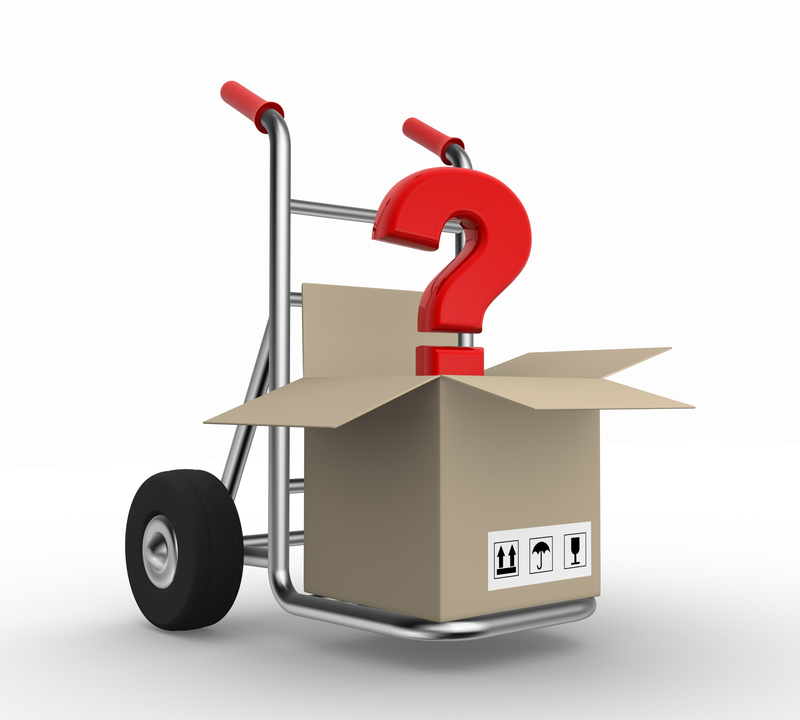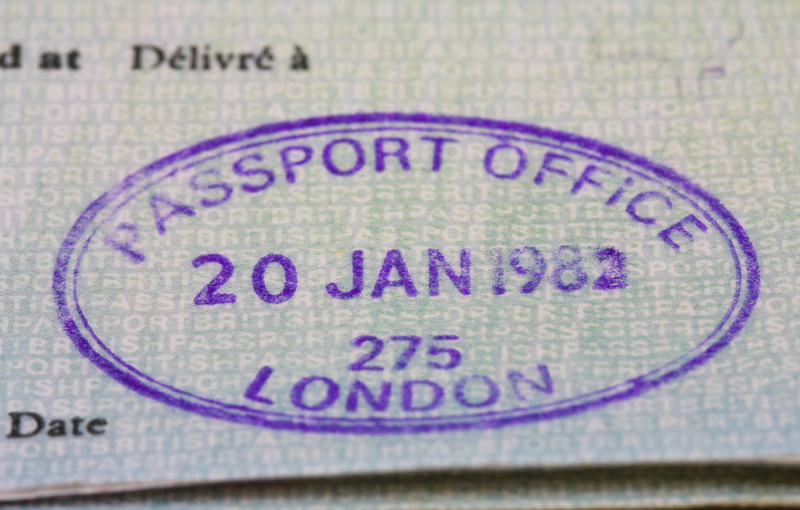Rest Easy Knowing Your Freezer is Safely Stored
Posted on 12/06/2025
Rest Easy Knowing Your Freezer is Safely Stored: The Ultimate Storage Guide
If you've ever asked yourself, "How can I secure my freezer and keep all my frozen goods safe?", you're in the right place! Ensuring your freezer is safely stored not only protects your investment but also guarantees that your food remains fresh and manageable for months. In this comprehensive article, we'll explore tips, best practices, and must-know information so you can truly rest easy knowing your freezer is safely stored.

Why Is Proper Freezer Storage Essential?
Proper freezer storage goes beyond simply tucking your appliance into a corner of your home or garage. In fact, safe freezer storage impacts:
- Food Safety - Reducing the risk of spoilage and contamination
- Energy Efficiency - Lowering electricity bills by helping your freezer run optimally
- Appliance Longevity - Extending your freezer's lifespan
- Convenience and Accessibility - Making your life easier and your food easier to find
- Peace of Mind - Allowing you to rest easy knowing nothing will go wrong
Common Freezer Storage Mistakes
Before learning how to store your freezer safely, let's review some common mistakes homeowners make:
- Placing it in direct sunlight (causing the freezer to work harder and less efficiently)
- Storing in unheated garages or sheds without proper preparation
- Blocking ventilation which can overheat the compressor
- Ignoring electrical requirements and using inadequate outlets
- Overfilling or underfilling your freezer, affecting performance
Step-by-Step: How to Ensure Your Freezer is Safely Stored
Follow these practical steps to secure your freezer and its contents for the long haul:
1. Pick the Optimal Location
Start by choosing a cool, dry, and level spot in your home. Ideally, place your freezer:
- Inside the home, basement, or climate-controlled garage
- Out of direct sunlight and away from heat sources (like ovens, radiators, or windows)
- Where there is easy access for loading and unloading
Tip: If storing in a garage, ensure the temperature does not drop below 10?C (50?F) in winter or rise above 32?C (90?F) in summer.
2. Maintain Proper Ventilation
Ventilation is critical for preventing your freezer from overheating. To guarantee your freezer is safely stored, keep the following in mind:
- Maintain at least 2-4 inches of space around the appliance
- Avoid pushing the freezer up against walls or stacking objects on top
- Regularly clean vents and the condenser coil to avoid dust buildup
3. Use a Dedicated Power Outlet
To keep your freezer running safely and smoothly:
- Plug directly into a grounded wall outlet (do not use extension cords)
- Check your freezer's power requirements - most need a dedicated 15-20 amp circuit
- Consider using a surge protector if recommended by the manufacturer
Note: Extension cords may overheat, causing safety hazards or compromising your appliance's operation.
4. Regularly Defrost and Clean
An over-iced freezer reduces efficiency and can damage stored foods. To prevent this:
- Defrost manual freezers at least once a year, or when ice exceeds 1/4 inch thick
- Wipe down door seals and interior surfaces frequently
- Check for mold or unpleasant odors, which can compromise food safety
5. Store Food Correctly
The way you organize and package food inside your freezer is just as important as storing the appliance itself safely. Follow these guidelines:
- Use airtight containers or heavy-duty freezer bags to prevent freezer burn
- Label everything with names and dates
- Use the first-in, first-out principle to reduce waste
- Leave space between items for air circulation
Pro tip: Never stuff your freezer so full that air can't flow; likewise, don't leave it too empty, as a partially full freezer can lose cold air quickly when opened.
6. Install Security Measures
If you're worried about theft, curious children, or accidental unplugging, consider these extra steps:
- Use a locking mechanism if your freezer will be accessible to many people
- Install an appliance alarm which warns if the temperature rises or the door is left open
- Use cable management products to prevent accidental unplugging
Understanding Freezer Types and Their Storage Needs
Different models have distinct requirements for ensuring your freezer is safely stored. Here's a breakdown:
Upright Freezers
- Require less floor space, suitable for kitchens or utility rooms
- Doors need extra clearance for opening
- Stand upright - easier to organize and see contents
- Must stay level on all four corners
Chest Freezers
- Typically more energy efficient
- Have a larger surface area, so require more room
- May need more frequent manual defrosting
- Keep heavy items near the bottom and light ones on top
Portable/Compact Freezers
- Great for RVs, dorms, or small apartments
- Ensure ventilation isn't blocked, even in tight spaces
- Support them on a stable, vibration-free surface
Is It Safe to Store a Freezer in the Garage?
This is a frequent question, especially with bulky chest freezers. The answer is: Yes, but with important caveats.
- Check Manufacturer's Recommendations: Some freezers are built for indoor use only. Always review your manual.
- Temperature Extremes: Insulate your garage to maintain safe operating temperatures.
- Rodent/Insect Control: Keep the space clean to avoid pests nesting near power cords or motor areas.
- Humidity: Excess moisture can rust components. Use a dehumidifier if needed.
Don't just tuck your freezer away and forget it - keeping it safely stored in the garage requires a bit more diligence to extend its life and protect your food.
Signs Your Freezer Isn't Safely Stored
To truly rest assured your freezer is safely stored, watch for these red flags:
- Unusual noises or vibrations - Might mean it is off-balance or not ventilating properly
- Frost buildup on the outside - Indicates improper sealing or a humid environment
- Food not freezing evenly - Signals airflow or spacing problems inside
- Rising energy bills - Could result from inefficient placement or lack of defrosting
- Pooling water - Drainage issues can lead to mold and electrical hazards
Creating a Maintenance Routine for Peace of Mind
Establishing a simple, regular maintenance routine will help ensure your freezer remains safely stored for years. Here's what to include:
- Monthly: Check and wipe seals, inspect for leaks and clear obstructions around vents.
- Quarterly: Vacuum condenser coils, inspect the power cord and plug for damage.
- Annually: Complete a full defrost, deep clean the interior, and reevaluate the placement as your storage needs change.
A proactive approach safeguards your investment and lets you rest easy knowing your freezer is properly looked after.
Frequently Asked Questions About Safe Freezer Storage
How full should I keep my freezer?
A well-stocked freezer holds the cold better and is more energy efficient. Try to keep it about 75-85% full for optimal performance.
Can a freezer be stored on the porch or outdoors?
Generally, this is not advised. Outdoor freezers suffer from temperature fluctuations, rain, sunlight, and pests.
Should I turn off my freezer if I'm away for an extended period?
If you leave for several weeks, it may be wise to empty the freezer, defrost, and unplug to avoid issues from power outages.
How can I prolong my freezer's life?
- Keep it clean and free of frost
- Store it somewhere dry and temperature-controlled
- Regularly check all workings and seals

Rest Easy: The Benefits of Proper Freezer Storage
By reinforcing strong habits in safe freezer storage, you'll reap a range of benefits, including:
- Reduced Food Waste: Keep everything fresh and easy to access
- Lower Utility Bills: Maximize energy efficiency
- Longer Appliance Life: Avoid costly repairs or premature replacement
- Safety and Hygiene: Prevent contamination and foodborne illness
- Stress-Free Living: Truly rest easy knowing your freezer is safely stored
Conclusion: Peace of Mind Through Effective Freezer Storage
Whether you're storing a compact freezer in an apartment, a large chest freezer in your garage, or anything in between, proper appliance placement, regular maintenance, and secure food organizing are all vital to knowing your freezer is safely stored.
Don't let a small mistake cost you hundreds in wasted food or expensive repairs. Follow these proven steps above, and you'll gain true peace of mind, knowing all your frozen treasures are protected. Rest easy tonight knowing your freezer is safely stored, and use this guide as your go-to resource for freezer maintenance, storage, and peace of mind!
Latest Posts
Top Secrets to Effortlessly Move Your Bed and Mattress
Optimal Decluttering Techniques for Movers
Simplify Your Move with Targeted Packing Tips



